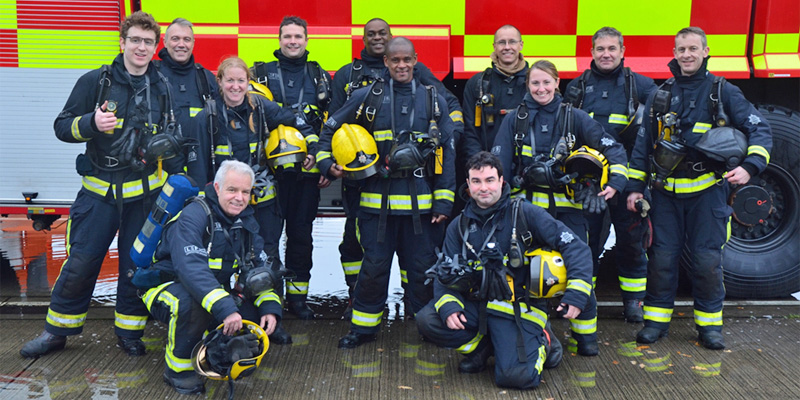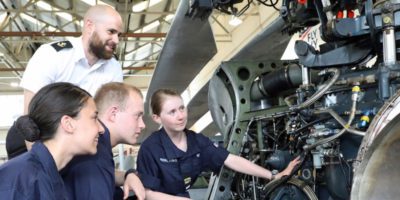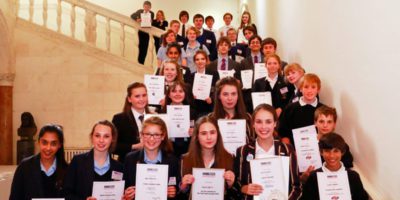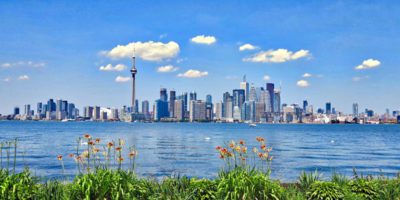Lynsey Seal is joint head of the London Fire Brigade Fire Engineering Group, where she oversees six full time fire engineers in her role, and her team is expanding. The Fire Engineering Group is part of our Fire Safety Department and they act as internal consultants to fire safety colleagues and other departments within the Brigade, as well as providing advice and input on various external technical groups and projects.
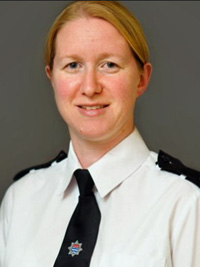
“…The importance of a truly diverse and inclusive team (not solely considering gender) is clear when you start to discuss a problem…”
Getting a buzz from creating something
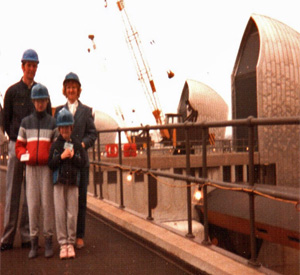
I knew I wanted to be an engineer from around the age of seven or eight years old. The idea was brought about from spending odd Saturdays ‘working’ with my dad, who is an electrician. So, from there I decided I wanted to become an electrical engineer – it was my work experience at the manufacturing company where my mother worked (as an accounts clerk) that lead me into mechanical engineering.
I’ve always loved that feeling of taking a picture of something and seeing it constructed – as a child I was a big fan of LEGO and as an adult in my work environment seeing how the design and build process works still gives me a buzz. My first roles were manufacturing of level gauges and heat exchangers and now it’s playing a role relating to the development of buildings from that initial concept design to completion and occupation.
Career to date
After completing my GCSEs, I was offered an apprenticeship by a mechanical manufacturing company. As part of the apprenticeship I was sponsored to complete academic qualifications including Ordinary National Certificate / Higher National Certificate and an integrated masters’ degree (B.Eng) in Mechanical Engineering. While I attended lectures one day a week the rest of the time was spent gaining work experience which complimented the studies.
After a spell working as a mechanical project engineer at another company I decided that I wanted a change of direction while staying in the engineering field. I joined London Fire Brigade in 2004 as a fire engineer and I am now a senior fire engineer supporting others’ development.
Becoming registered with the Engineering Council was always something I aspired to and London Fire Brigade support this process by specifically referencing it within our group’s job descriptions. The ethos of professional development is well established within our group and is something we all strive to achieve. In this regard, I believe London Fire Brigade Fire Engineering Group has set a clear competency standard which is expected for all of our engineers. Competency levels of the wider fire, design and construction industry is an area which has come under much scrutiny of late.
A unique role
As well as being qualified engineers we are all trained fire safety officers. Our role is unique, seeing a building through the design process to when the building is occupied. In terms of occupied buildings, we support our inspecting officers with technical advice relating to fire safety contraventions in occupied buildings under the Regulatory Reform (Fire Safety) Order 2005 and we can provide fire safety expert witness support where London Fire Brigade may undertake a prosecution.
As part of the life cycle of any building we also see how a building and anyone in it behaves during a fire. We work with London Fire Brigade Fire investigation and use the knowledge gained from fires to feed back into the design process, thereby continually trying to influence designs positively in terms of the safety of occupants and firefighters alike.
The fire engineering group is involved in a real variety of fabulous projects. In 2018 the Group merged with another team so it is now responsible for all fire engineering related projects, including transport and infrastructure. This includes projects such as Northern Line extension, Crossrail, HS2 and ongoing involvement with both Heathrow and City airports. The role gives us access to very high-profile projects including site visits such as to the very top of the Shard, brand new tunnel systems, or to see parts of London that most people don’t know exist.
In terms of projects I’ve been involved in, I was extremely lucky to work on various projects for the 2012 London Olympics, including the athletes’ village. I’ve also been the lead London Fire Brigade engineer on various projects including Westfield Stratford City, St Pancras Chambers, firefighting access at Elizabeth Tower and the Tate Modern.
Plans for International Women in Engineering Day
I have just supported an event at the Royal Military Academy at Sandhurst by speaking to an audience of around 900 schoolgirls about fire engineering as a career. I’ve also just fulfilled a personal commitment to become a STEM ambassador to do my bit to encourage more young people (in particular girls) into these subject areas.
What a day! Fabulous event and such an incredible venue to share thoughts on STEM careers to try and inspire the next generation of female engineers – and hopefully amongst them some fire engineers.. @RMASandhurst @LondonFire @jacquimurray25 pic.twitter.com/nnhHnPlPgh
— Lynsey Seal (@lynsey_seal) May 24, 2018
International Women in Engineering Day is an important event because it publicises the fact that not only are there women in engineering, but also lots of highly successful women who thoroughly enjoy their fulfilling roles. It also gives us the valuable opportunity to highlight that there is still work to be done to encourage more women into engineering.
Diverse and inclusive teams solve problems better
There is evidence and research that suggests that diverse teams perform better than those that aren’t. The importance of a truly diverse and inclusive team (not solely considering gender) is clear when you start to discuss a problem – our life experiences, cultural differences, relationships etc. all influence how we may view the world and it’s when we listen to each other, take on board different opinions and views that we can seek to form the best conclusions.
Advice for girls and women who are interested in engineering
If you’re unsure about which type of engineering would suit you, my advice is to try and find out as much as you can about the different options available. This could include apprenticeships, where you get valuable work experience alongside a formal qualification (which may be paid for by the employer).
Talk to engineers and ask them about their jobs – there are so many options in engineering in terms of roles that there is bound to be something for everyone that suits them.
Coming up
At the moment my focus is on development of our team of fire engineers and supporting their progression to professional registration. I’m also looking forward to more STEM work possibly with the other inspirational female engineers I met at the recent STEM event.
http://www.london-fire.gov.uk/
https://twitter.com/londonfire
https://twitter.com/lfbredbridge
https://www.facebook.com/LondonFireBrigade/

